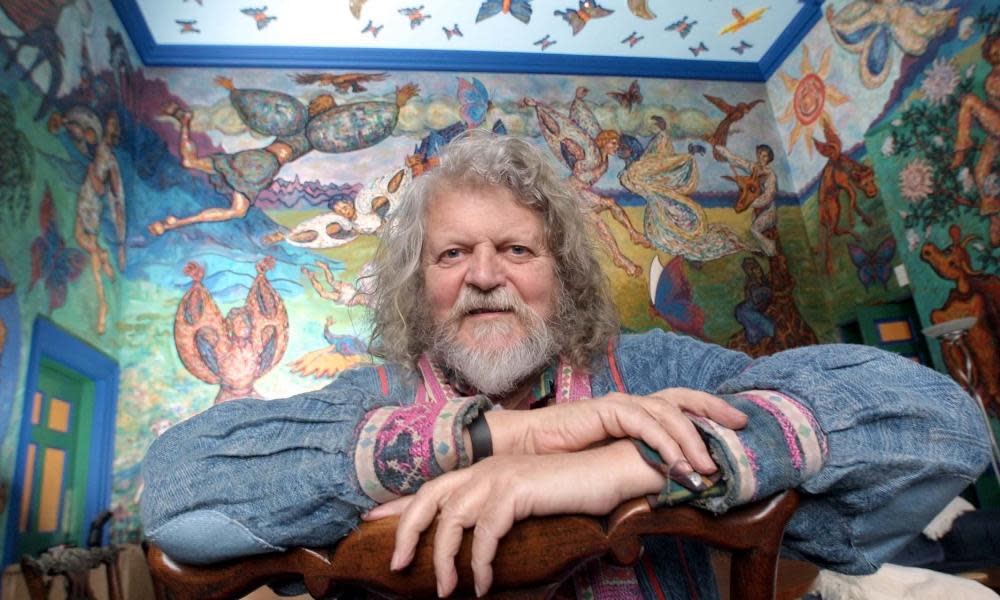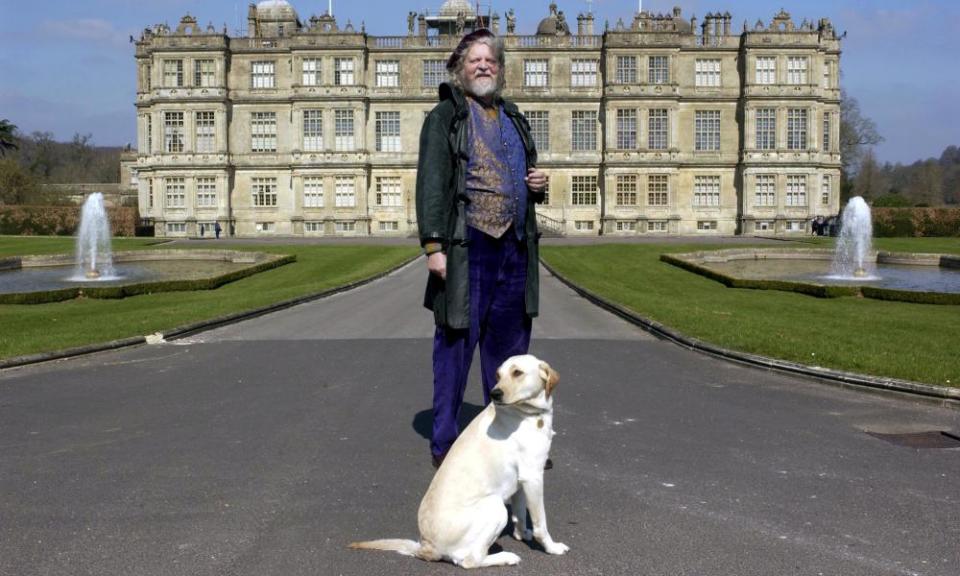The Marquess of Bath obituary

As the chatelain of Longleat, one of the grandest Tudor mansions in Britain, the Marquess of Bath, who has died aged 87 after contracting Covid-19, devoted his life to a remorseless and self-conscious campaign to preserve the English aristocracy’s reputation for eccentricity.
An imposing 6ft 5in figure with flowing shoulder-length hair and a straggly beard, colourful waistcoats, shirts and trousers, often topped with a fez, he was a tabloid favourite, not only for his picturesque appearance and peculiar artistic tastes but for his string of mistresses, whom he referred to as his wifelets (he reckoned there to have been around 74 of them).
Given that his 16th-century stately home and its 9,000-acre estate in Wiltshire housed the Longleat safari park, subject of a 1967 BBC documentary, The Lions of Longleat, he chortlingly became known as the Loins of Longleat – not that he objected. “If we get on sexually, that’s good enough,” he said. “It’s a trade-off: she gets the prestige and I get the pleasure.”
He painted portraits of 69 of his wifelets and decorated a staircase at Longleat with them – one visitor remarked that the paintings all looked the same. Giving the Daily Mail a tour of the paintings in 1999 he said: “These are the severed heads of every woman I have ever loved. My wife is somewhere in there. It would be nice to pin rosettes on the best ones but that would get me into trouble. They were all above average, you know.”
The marquess’s wife, Anna Gyarmathy (also known as Anna Gaël), a Hungarian former actor whom he married in 1969 (apparently partly in order to father a legitimate heir for the family estate), lived a separate life with her own lover in Paris, returning to Longleat for occasional weekends.

A changing coterie of wifelets occupied cottages on the estate, and as recently as 2011, when the marquess was approaching 80, two of them engaged in a fist-fight over who should sleep with him. As the police were called, the marquess apparently told them: “You sort it out, I’m going to bed.”
He was born Alexander Thynne in London, the eldest son and second child of Henry, Viscount Weymouth, who would become the 6th Marquess of Bath, and his first wife, Daphne, the daughter of the 4th Baron Vivian. Thynnes had lived at Longleat since before 1567, when the house replaced an earlier priory. They claimed descent from Alfred the Great and, less reliably, from the Roman historian Tacitus. Asked by a footman as a small child what he wanted to be when he grew up, Alexander answered: “Lord Bath, of course.”
Alexander did not get on with his father, whose own eccentricities extended to collecting Adolf Hitler memorabilia and he claimed that he was frequently beaten by his father with a riding crop as a teenager.
Raised largely by a nanny at a house in the grounds of Longleat and at the family’s London home in Tite Street, Chelsea, Alexander was educated at Eton and then Christ Church, Oxford, where he chaired the male-only Bullingdon Club, largely reserved for the aristocracy and the very wealthy. In 1953, his parents went through a bitter divorce when their son was 21.

He did his national service as an officer in the Life Guards, where he won the army’s welterweight boxing championship for officers and dropped the last “e” from his surname in a vain attempt to disguise his family ties. After leaving the army, the young viscount entered his lifelong hippy phase.
By then Longleat was already famous as a tourist attraction – one of the first stately homes to be opened to the public in an attempt by the 6th Marquess to pay off the £700,000 bill for death duties left by the sudden demise of his father in 1946. In its first year of opening, 1949, the house received more than 135,000 visitors and its fame increased in 1966 when a 100-acre drive-through safari park stocked with lions was added to its attractions.
Alexander took over the running of the estate as early as 1958, while his younger brother, Christopher, was put in charge of the house. On the 6th Marquess’s death in 1992, Alexander promptly sacked his brother and evicted him from his house on the estate. He enjoyed the publicity that came with running Longleat: “Sometimes I leap out and pretend to be a lion!” he said in 2003. “[Visitors] appear very pleased that they have had a chance to see me. It’s very entertaining, particularly if I talk about myself.”
From the 1960s he had started decorating the house with his paintings, achieving a nobbly texture from mixing sawdust and paint and creating enormous mural-like works with titles such as Heaven and Hell (in the kitchens), Night and Day, My Early Life and, most notorious of all, a creation called Kama Sutra in a bedroom. The work showed at least 20 couples engaged in vigorous and varied sexual activities – “Made ’em all up myself,” he said. “Just my imagination.” The room was opened for public viewing in 1969 but was rapidly closed down by the police.
Perhaps fortunately, the paintings were created on removable boards, but when Alexander’s son, Ceawlin, took over Longleat in 2010 and moved some of the works into storage, replacing the decor with plain white walls, his father was appalled.
“It’s my life’s work and he’s quietly binned it,” he said in 2013. “It’s killed my relationship with him and I don’t feel inclined to pay any interest in his wedding.”
That wedding, to the Anglo-Nigerian model and chef Emma McQuiston, caused ructions after the viscount’s mother, Anna, apparently questioned the dilution of “400 years of bloodline” because of the bride’s mixed-race ancestry.
As a result Anna was barred from the wedding at Longleat, with security guards posted to keep her out. The marquess and his wife decamped instead to another wedding in Hampshire. Afterwards he retreated to an apartment in the upper storey of Longleat house and rarely saw, or spoke to, his son.
He spent many years writing his autobiography, Strictly Private, which was originally planned for 19 volumes. However, only four were issued; publishers were possibly daunted by the knowledge that he claimed to have written 6m words and had still only reached the year 1991. A novel, Pillars of the Establishment, featuring a marquess and two sons who all contracted venereal disease from the same woman, was published in the early 80s.
The marquess stood twice unsuccessfully for parliament in the 70s as a candidate for the Wessex Regionalists party, and sat in the Lords as a Liberal Democrat until the Labour reforms in 1999 deprived him of a seat in the upper chamber.
He is survived by Anna, their son, Ceawlin, who now becomes the 8th Marquess, and daughter, Lenka, and a further daughter born in 2000 whose paternity he acknowledged.
• Alexander George Thynn, 7th Marquess of Bath, born 6 May 1932; died 4 April 2020


